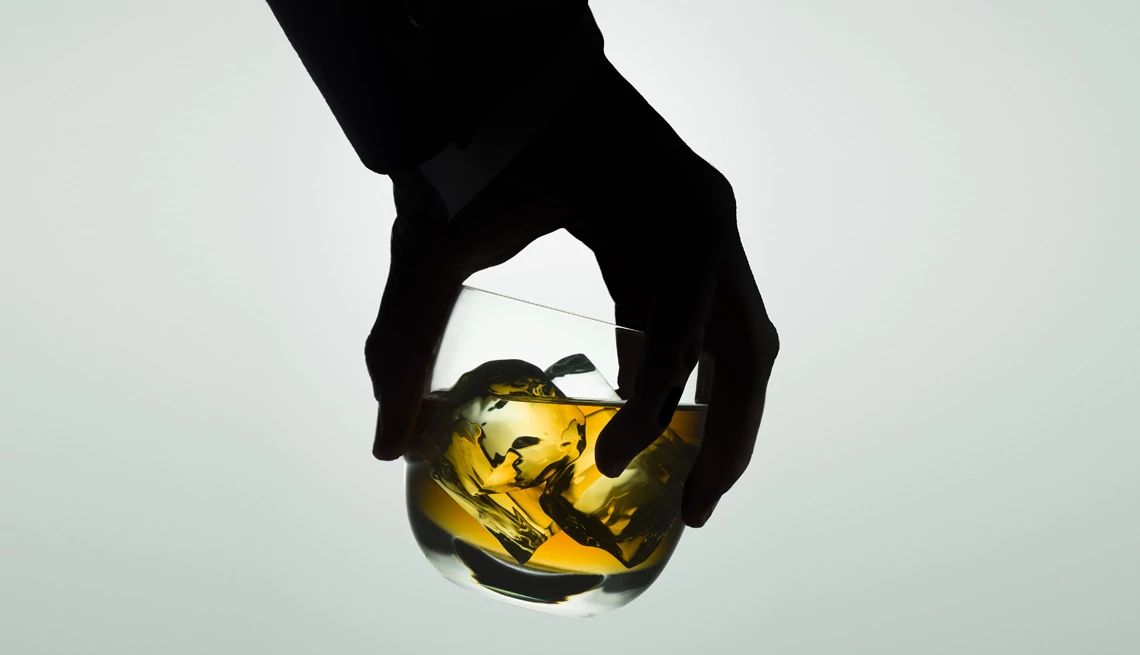AARP Hearing Center


As you add more candles to your birthday cakes, you may notice that your organs don’t work as efficiently as they once did. Your balance might not be as good, and your response time may not be as quick. Perhaps you have more aches and pains than you did last year.
Just like your body inevitably changes with age, your drinking habits most likely need adjustments, too. That’s because with increasing age, “our bodies become more sensitive to the effects of alcohol,” says Kenneth Koncilja, M.D., an internal medicine physician at Cleveland Clinic. Plus, accumulating research finds that drinking alcohol comes with some serious health risks, particularly for older adults.
Here are seven reasons why doctors and public health experts say age and alcohol don’t mix.
1. It takes less to get drunk
Your liver processes alcohol, and like the rest of your body, this organ isn’t getting any younger. That’s a big reason an aging body becomes more sensitive to alcohol.
“We also have changes in our body composition as we age,” says Lauren Kelly, M.D., an assistant professor in the Department of Geriatrics and Palliative Medicine at Icahn School of Medicine at Mount Sinai in New York City. “We’re made up of less water and more fat.”
That reduction in the body’s natural water content, in part because water-retaining muscle tissue shrinks, makes older people more prone to dehydration and more likely to feel drunker, quicker.
“As you age, you get a higher blood alcohol concentration — what they measure on a breathalyzer — than a younger person who drank the same amount,” Koncilja says. And that means you can get hit with all the side effects in fewer sips.
“That can include cognitive effects, sedative effects — like how you get sleepy with alcohol — effects on balance and coordination, raising your risk for falls,” Koncilja adds. It can also include effects on attention and driving skills, he says.
2. Drinking can increase your risk of disease and death
That drunk or tipsy feeling should clear up by the next day, maybe leaving you with a hangover. But the consequences of consuming alcohol can extend beyond that.
A new advisory from United States Surgeon General Vivek Murthy, M.D., warns about the direct link between alcohol consumption and cancer.
Alcohol is the third leading preventable cause of cancer in the U.S., the advisory says, and drinking it increases a person's risk for seven types of cancer, including breast, colorectal, esophageal, liver, mouth, throat and larynx. When it comes to breast cancer, Murthy notes that more than 16 percent of cases in the U.S. are attributable to alcohol consumption.
“Alcohol is a well-established, preventable cause of cancer responsible for about 100,000 cases of cancer and 20,000 cancer deaths annually in the United States — greater than the 13,500 alcohol-associated traffic crash fatalities per year in the U.S. — yet the majority of Americans are unaware of this risk,” Murthy said in a news release. In the advisory, he outlines recommendations to increase awareness of the health risks, including a call for warning labels on beverages that contain alcohol.
In addition to this latest advisory, a recent study of more than 135,000 older adults, published in the Journal of the American Medical Association, found that even as little as one drink a day raises the risk of death by any cause for older adults with pre-existing conditions or low socioeconomic status. And no one, regardless of health or socioeconomic status, was immune to the effects of more than one drink a day.






































































More From AARP
Doctor, Are You a Fan of Dry January?
Advice for taking a month-long break from alcohol
What Happens to Your Body When You Quit Alcohol for a Month
8 improvements to mind and body10 Expert Tips on How to Cut Back on Alcohol
More and more people are sober curious, toying with the notion of drinking less. Here’s how to get started.